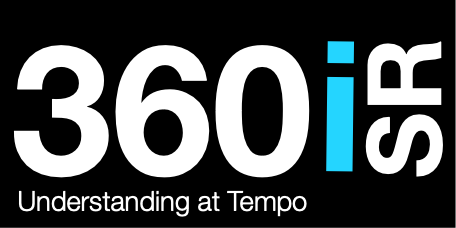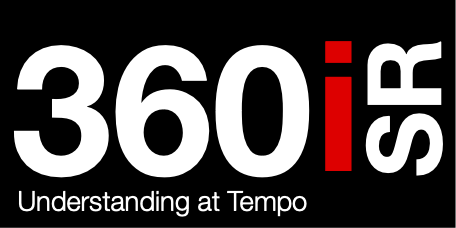Cognitive Warfare – Why we tiptoe around the issue?
Cognitive Warfare – Why we tiptoe around the issue?

When Kimberly Underwood stated that “Cognitive Warfare Will Be Deciding Factor in Battle”, few listened. Fast forward 6 years and many articles on the subject, NATO now accepts that “Cognitive warfare is now seen as its own domain in modern warfare. Alongside the four military domains defined by their environment (land, maritime, air and space) and the cyber domain that connects them all, recent events upsetting the geopolitical balance of power have shown how this new warfare domain has emerged and been put to use.” [Cognitive Warfare:
The Future of Cognitive Dominance Bernard Claverie, François Du Cluzel].
So why are western forces finding it so difficult to accept that CogWar, as it is now known, is an existential threat and that it falls to the military to understand if cognitive warfare is being waged and if so, to what affect.
The recent horrific events in Israel and Palestine create a perfect backdrop for cognitive warfare proponents. The explosion at a Gaza hospital that killed hundreds of Palestinians on Tuesday was the latest focus of the surge of activity as supporters of both sides in the battle between Israel and Hamas try to bolster their own side's narrative and cast doubts on the other's. Regulators and analysts say a wave of online disinformation risks further inflaming passions and escalating the conflict in an electronic fog of war. President Biden commented on this very case when saying that, "But there's a lot of people out there not sure, so we’ve got a lot — we’ve got to overcome a lot of things". Cognitive warfare is real, but it is not new.
Russia and China possess huge Cognitive Warfare capabilities. Arguably the greatest example is the annexation of Crimea by Russia in 2014, and then the more contentious examples of the US presidential election in 2016 and the UK BREXIT vote in the same year. China also exploits, what Gen Sir Nick Carter refers to as “[how], Western states draw legitimacy from respect for the rules, conventions, and protocols of war. Where we see morals, ethics, and values as a centre of gravity, authoritarian rivals see them as an attractive target.; social media being the weapon of choice.
The potential influence from China resulted the "Biggest Single Takedown" of thousands of fake accounts on Facebook, Instagram, TikTok, X, and Substack by Meta, a campaign spreading false information about the Hawaii fires, and yet another campaign using AI-generated images to intensify divisive U.S. political topics are just a few of the reports that have surfaced recently. Experts and politicians predict that similar strategies will be employed in the 2024 U.S. presidential election and any prospective Taiwanese war.
According to Chinese government and military literature, the aim of cognitive operations is to "capture the mind" of the adversary by affecting their perceptions and thoughts, and therefore their choices and deeds. The People's Liberation Army, in contrast to U.S. defence publications and strategic thinkers, views cognitive warfare as essential for victory—especially a victory without war—and compares it with other domains of combat like air, sea, and space.
Platforms for social media are considered to be the main theatre of this struggle. China has conducted considerable study and developed its own platforms in recognition of the influence social media has on people's perceptions of events and behaviours. It may not come as a surprise that the Chinese Communist Party believes it can progressively mould and even control the cognition of people and entire societies given that the typical user spends 2.5 hours per day on social media—36 full days out of the year, or 5.5 years in an average lifespan.
“Wars will be resolved by a skilful combination of military, nonmilitary, and special nonviolent measures that will be put through by a variety of forms and methods and a blend of political, economic, informational, technological, and environmental measures, primarily by taking advantage of information superiority. Information warfare in the new conditions will be the starting point of every action now called the new type of warfare, or hybrid war, in which broad use will be made of the mass media and, where feasible, global computer networks (blogs, various social networks, and other resources)”
S. G. Chekinov and S. A. Bogdanov, Forecasting the nature and content of wars of the future: problems and assessments
The exponents of CogWar see four main lines of attack, four social media strategies—referred to as "confrontational actions". In a PLA Daily article, these are described as:
· Information disturbance
· Discourse competition
· Public opinion blackout
· Block information
According to Duan Wenling and Liu Jiali, academics at China's National Defence University, the goal is to create an "invisible manipulation" and "invisible embedding" of information output "to shape the target audience's macro framework for recognising, defining, and understanding events."
Information disturbance is defined as "publishing specific information on social media to influence the target audience's understanding of the real combat situation, and then shape their positions and change their actions." (“Social media platforms are the main battlefield for cognitive warfare”) Information Disturbance pushes and shapes a narrative in specific ways via official social media. Information Disturbance is more sophisticated than just trying to look powerful. During the 2014 "Twitter War" between the Israeli Defence Force and the Palestinian Qassam Brigade, the Palestinians were able to "win international support by portraying an image of being weak and the victim." The exact same CogWar is being played out (again) by supporters of Hamas and supporters of Israel: who is the victim, who deserves global sympathy and support? The language used by Western media to introduce a story concerning the Ukraine War is interesting. All media outlets use the phrase, “Russia’s illegal invasion of Ukraine”. In one sentence, branding Russia as the criminal and Ukraine as the victim, therefore engendering victim support to Ukraine and outrage against Russia. And of course, this message is repeated time and time again, reinforcing the narrative and securing subscription.
Discourse Competition is more subtle and long-lasting. In order to further political or military objectives, the authors outline a "trolling strategy" in which tales are progressively spread through online comments and social media. The goal is to influence and strengthen a desired story by stoking pre-existing biases and playing with people's emotions. The authors emphasise the significant impact that "invisible manipulation" and "invisible embedding" on social media platforms like Facebook and Twitter in regard to international events and urge leveraging algorithm suggestions to push more material to target audiences with desired biases. Users that are targeted will eventually reject material that does not support their viewpoint as the emotion and prejudice build over time.
Public Opinion Blackout is a strategy used to inundate social media with a certain story in an effort to alter public opinion. The major technique used to "blackout" public opinion is a bot that spreads the narrative like wildfire while stifling opposing viewpoints and news. In light of the expanding use of AI in Chinese influence operations, it is noteworthy that one popular and efficient strategy for influencing people's thoughts is to use machine learning to profile social media accounts, tracking people's emotions and prejudices. The results will be a list of individual people and groups, targets if you wish, who are most susceptible, and then quickly and intensively "shoot" customised "spiritual ammunition" at the target group.
This is consistent with another study published by the PLA titled "How ChatGPT will Affect the Future of Warfare." The authors of this article assert that generative AI may "efficiently generate massive amounts of fake news, fake pictures, and even fake videos to confuse the public" on a societal level. The goal is to spread false information via internet trolls in order to generate a "flooding of lies" and mislead people about the truth. In order to foster a sense of insecurity, uncertainty, and mistrust, it is intended to confuse the target audience's perception of the veracity of "facts" and to exploit feelings of fear, anxiety, and suspicion.
Block Information focuses on "conducting technical attacks, blockades, and even physical destruction of the enemy's information communication channels." By stopping an enemy from releasing information, the objective is to monopolise and control information flow. The Chinese analysts think that the United States has a significant advantage in this technique but not in any of the others. They point to the fact that in 2009, for instance, the American government gave Microsoft permission to block the Internet instant messaging ports of Syria, Iran, Cuba, and other nations in an effort to "erase" such nations from the global Internet. Additionally, the writers note that in 2022 Facebook placed limits on various media outlets in Russia, Iran, and other nations, but they make a misleading allegation that the firm did this to generate negative perceptions toward the United States for the US to gain an advantage in “cognitive confrontation.”
Through these, and many other strategies, CogWar seeks to “defeat without a fight, but to wage a war on what an enemy community thinks, loves or believes in, by altering its representation of reality. It is a war on how the enemy thinks, how its minds work, how it sees the world and develops its conceptual thinking. The effects sought are an alteration of world views, and thereby affect their peace of mind, certainties, competitiveness, and prosperity.” (“(PDF) “Cognitive Warfare”: The Advent of the Concept ... - ResearchGate”) This is significant, because the purpose of war is to change the will and perceptions of the enemy through “violent means”. Violence is no longer limited to the physical domain, it now exists withing the information domain, and it is here that war rages every day.
So, to come back to my original question, “Cognitive Warfare – Why we tiptoe around the issue?”, I do not have an answer, only more questions…

“Cognitive warfare is now with us. The main challenge is that it is essentially invisible; all you see is its impact, and by then ... it is often too late.” (“The Cognitive Warfare Concept”)
Bernard Claverie, François Du Cluzel



